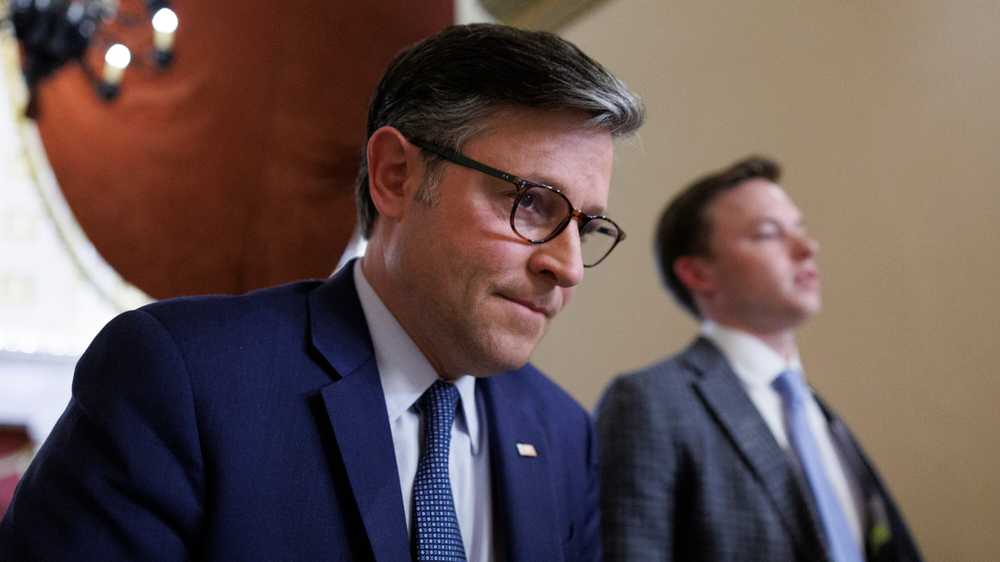
By Catie Edmondson and Luke Broadwater
This week, Speaker Mike Johnson unexpectedly called off a vote on his initial proposal aimed at preventing a government shutdown, as opposition to the six-month funding stopgap grew within both parties.
This was a significant setback for Johnson, occurring just a few weeks prior to the critical Sept. 30 deadline that Congress faces to finance the government or risk a shutdown.
In brief comments made off the House floor around midday Wednesday, Johnson informed reporters that he would not proceed with the planned afternoon vote on the spending proposal, stating, “we are in the consensus-building business,” and noting that he was dealing with a narrow majority.
Clarity about the measure’s impending failure became apparent as early as Monday. Opposition from various Republican factions surfaced almost immediately following lawmakers’ return to Washington after an extended summer break earlier this week. Additionally, Democrats opposed the plan partly because it included legislation mandating proof of U.S. citizenship for voter registration, a policy they argue is unnecessary and could complicate the registration process for eligible voters.
Johnson’s sudden announcement complicated efforts to secure government funding past Sept. 30. The Senate, under Democratic control, and the White House have stated they would refuse to accept the short-term spending bill, even if Johnson could manage to gather the necessary votes in the House.
His choice to cancel the vote on Wednesday suggested that attempts to rally Republican support for the legislation were failing, potentially diminishing Johnson’s negotiating power.
The $1.6 trillion plan aimed to extend existing spending levels until March 28.
Criticism of the proposal came from across the political spectrum. Defense advocates opposed the legislation for effectively capping military spending, while conservative hard-liners resisted the continuation of funding levels they consider excessive. Democrats criticized the inclusion of the voting provision, labeling it as xenophobic and grounded in a baseless assertion that Democrats are attempting to facilitate illegal voting by noncitizens in November to manipulate election outcomes.
Former President Donald Trump, who has made that unfounded claim multiple times, has urged Republicans to deny funding the government without implementing the voting restrictions. Johnson championed this cause, framing his push to connect the stopgap funding measure to it as a “righteous” fight.
“This is a conviction I feel deep in my heart,” Johnson remarked on Tuesday about combining the two measures. “I think it’s something we must do. That’s why it’s worth fighting for.”
This situation has sparked an unwelcome sense of déjà vu on Capitol Hill, where House Republican leaders, under pressure from their conservative base to reduce spending and tighten immigration at the southern border, have engaged in disputes over the annual budget process for the last two years.
In numerous instances, the Republican speaker has struggled to garner enough votes even for a GOP version of a short-term spending proposal—a measure that conservatives disapprove of because it maintains rather than cuts funding levels.
Consequently, House Republicans have been compelled to accept bipartisan spending measures pushed by the mainstream factions of both parties, much to the dismay of ultra-conservatives in the conference.
There is a limited desire among most legislators for a shutdown just weeks ahead of the November elections. However, Trump, the Republican presidential nominee, on Tuesday directed party members to initiate a government shutdown unless they received “absolute assurances on Election Security.”
